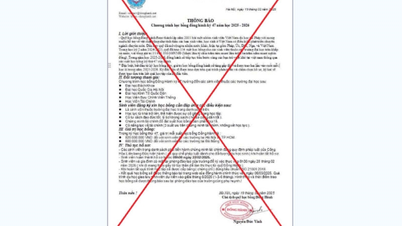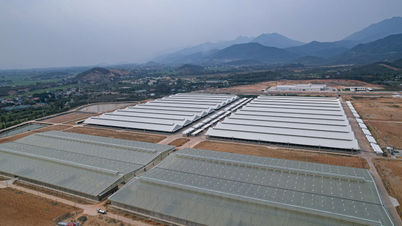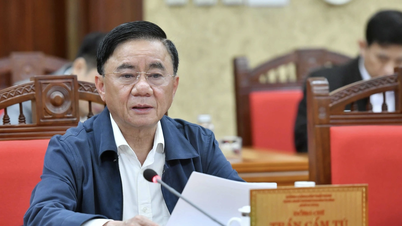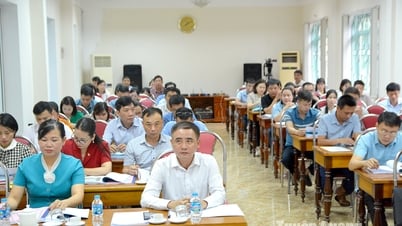 Implementing Decision No. 1986 of the Provincial People's Committee Chairman on the establishment of an inter-sectoral working group to review the overall production and business situation to serve the direction, management and removal of difficulties for enterprises, the Department of Planning and Investment (DPI) has coordinated with relevant units to review the production and business situation at 115 enterprises operating in many economic sectors in the province. After synthesizing the content of the difficulties and obstacles that enterprises are actually facing, the DPI has proposed groups of solutions to remove them and submitted them to the Provincial People's Committee for implementation in the coming time.
Implementing Decision No. 1986 of the Provincial People's Committee Chairman on the establishment of an inter-sectoral working group to review the overall production and business situation to serve the direction, management and removal of difficulties for enterprises, the Department of Planning and Investment (DPI) has coordinated with relevant units to review the production and business situation at 115 enterprises operating in many economic sectors in the province. After synthesizing the content of the difficulties and obstacles that enterprises are actually facing, the DPI has proposed groups of solutions to remove them and submitted them to the Provincial People's Committee for implementation in the coming time.

Due to the impact of the economic recession, Honda Vietnam 's vehicle sales have decreased, significantly affecting the province's economic growth and budget revenue. Photo: Chu Kieu
The survey results of 115 enterprises operating in the province's key sectors, representing the domestic economic sector and foreign-invested sectors in the province, showed that in the first 9 months of 2023, the number of enterprises with increased production output and revenue compared to the same period in 2022 accounted for only 36.2%, the rest were lower than the same period.
It is expected that by the end of 2023, up to 60% of enterprises will have lower production output and revenue compared to the same period in 2022, 40% of enterprises will have increased production output and revenue compared to the same period; in which, 2 FDI enterprises contributing large budget revenue to the province, Toyota and Honda, both have lower production output and revenue compared to the same period, reaching 64% and 83.5% respectively compared to 2022.
The global economic recession has negatively impacted the production and business activities of many enterprises. Many enterprises in the province have suffered a decrease in orders, had to lay off employees, and reduce working hours, especially small and medium enterprises (SMEs).
According to the Department of Planning and Investment, the SME sector is vulnerable to market fluctuations due to low production technology, mainly processing goods, weak competitiveness, lack of capital, production premises, etc.
Specifically, in the agricultural sector, although the Provincial People's Council has issued a Resolution on policies to support linkages in production and consumption of agricultural products, however, the forms of linkage in production and consumption are still small-scale, the rate of participating enterprises is not high, and some enterprises have difficulty in stabilizing product output.
In the field of industry, trade and services, the investment in infrastructure construction and management of industrial clusters (ICs) in the province has not been consistent and synchronous between the regulations on IC management and the provisions of the Investment Law; in which, the mechanism and procedures for handling and transferring IC technical infrastructure works invested from the State budget to infrastructure investors, which are enterprises and cooperatives, still have many problems in management and handling procedures related to investment in construction, management and development of ICs.
Besides, many businesses face difficulties in importing input materials, high production costs, lack of production space, high-quality labor, etc.
The management of the operation of the system of shopping centers, supermarkets, markets, etc. currently only stops at issuing regulations and operating rules for units from type 1 markets and above, while many market management units have not yet made periodic reports on the operation situation, making it difficult for management agencies to grasp information, control the circulation of goods, and the quality of goods, etc.
One of the common difficulties of businesses today is the problem of capital. Most newly established businesses have difficulty accessing credit because their collateral does not meet loan requirements, credit institutions do not have historical data, and cannot perform credit ratings when assessing and evaluating the business's ability to repay debts.
According to a survey by the Department of Planning and Investment, although many enterprises have gradually recovered production and business, they are still not able to repay all restructured loans and due debts; meanwhile, many enterprises have a high proportion of inventory, and credit institutions do not have the basis to approach and appraise loan projects.
Based on understanding the actual difficulties of enterprises, the Department of Planning and Investment has advised and submitted to the Provincial People's Committee for consideration and implementation of groups of solutions such as providing specific support for enterprises in difficult times when there are no orders, allowing deferred payment of taxes and insurance; flexibility in land procedures and capital sources; building a system of market information, business information, products, supporting enterprises in finding customers; building programs and policies to support capital for enterprises through the form of transferring entrusted capital through credit institutions for enterprises to borrow at preferential interest rates.
Continue to support businesses in organizing job fairs, promoting and guiding businesses to properly implement labor laws, promptly informing about changes related to the Labor Law and social insurance policies so that employees can work with peace of mind....
Hoang Son
Source

































































































Comment (0)